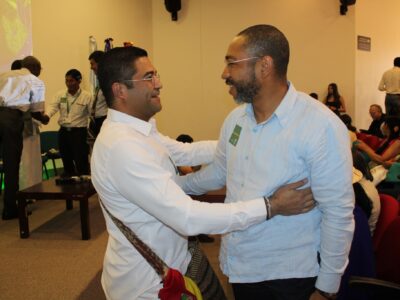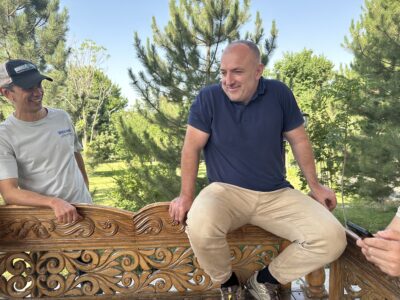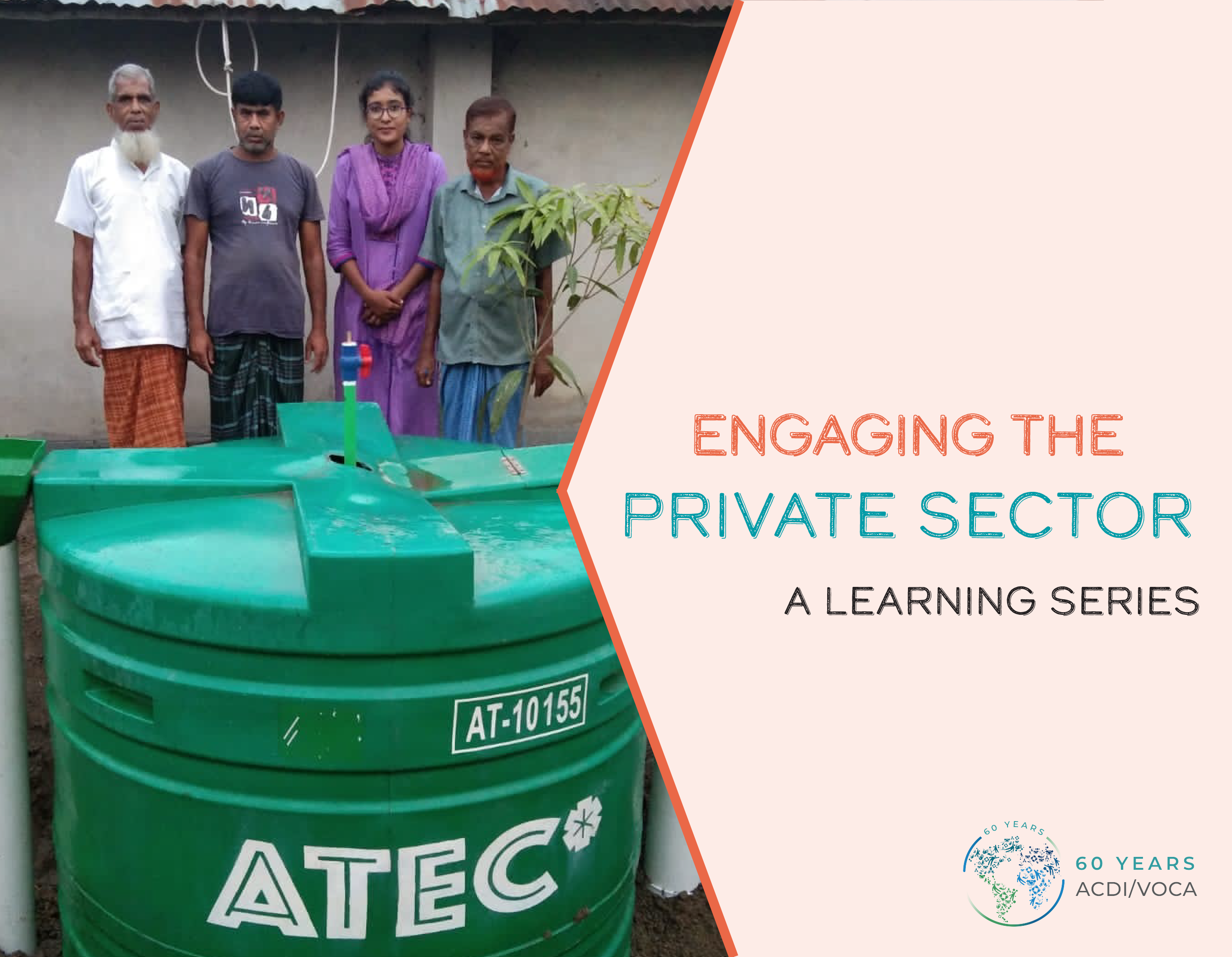
In January, ACDI/VOCA hosted a panel discussion on how the private sector is leading development as part of the Society for International Development’s Locally Led Development series. During the discussion, Mark Sevier, Senior Director of Private Sector Engagement at ACDI/VOCA, spoke with Shuvasish Bhowmick, Bangladesh Country Director of ATEC, an Australia-based biogas startup and social enterprise.
Read the Q&A below for Bhowmick’s insights into how his company scaled up and built a new network of rural customers in ways that will sustain long after the global development partner’s support ends.
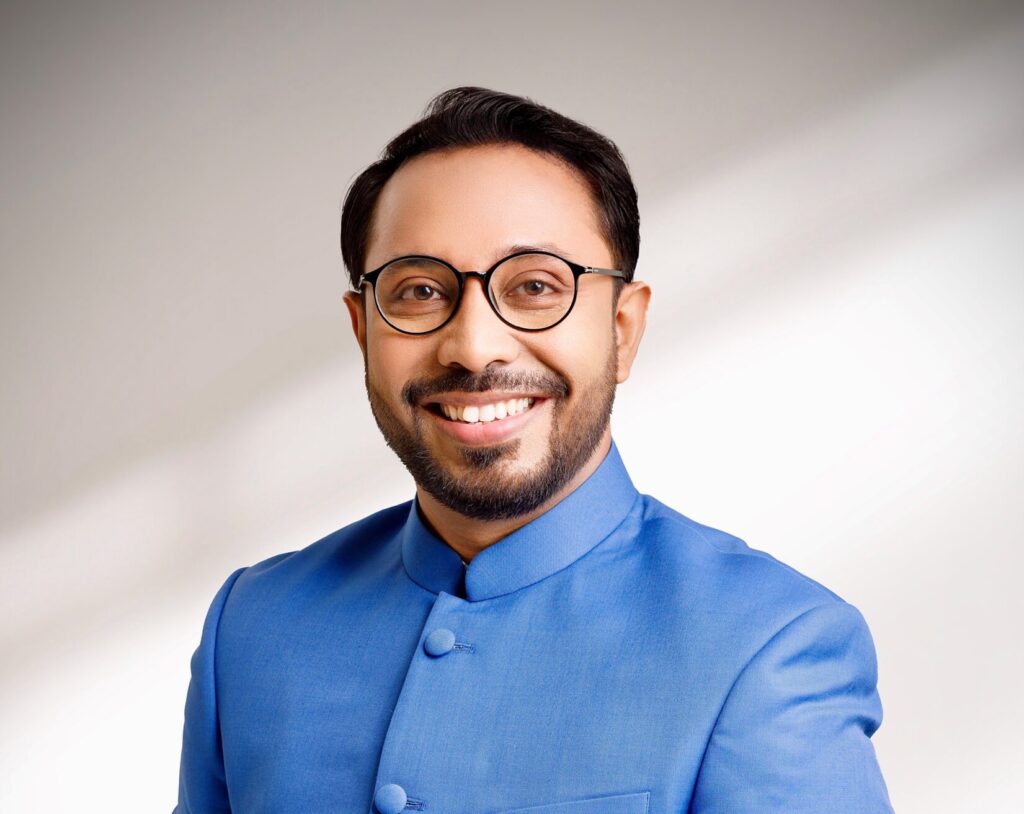
Q: Why did ATEC enter the Bangladeshi market? And how have you used your positioning power in the market to improve the lives of rural households?
A: ATEC partnered with the Feed the Future Bangladesh Livestock Production for Improved Nutrition Activity, a development program implemented by ACDI/VOCA from 2015 to 2021, to promote its climate-smart biodigester technology to convert livestock waste into cooking gas for rural households.
Q: How have local partners allowed ATEC to develop products tailored to those markets?
A: After gaining experience in Cambodia, we designed the biodigester product in such a way that it could meet the demand. Bangladeshi people’s cooking behavior is completely different (we love to cook a little more!), and energy consumption is a bit higher.
Initially, we thought we would reach customers the conventional way, but, when Covid hit, we didn’t have a choice. We had to reach customers digitally. We started by developing our web presence and promoting the product through our digital channels as well as through our government partners and our network of rural distributor agent models, who were key to getting the product into rural consumers’ hands and sensitizing them on the benefits of the biodigester.
We also introduced the pay-as-you-go model, which provided customers with the flexibility of payment and affordability. We are the only company in Bangladesh to introduce this model within the cooking sector. This is how we have scaled up our business in Bangladesh.
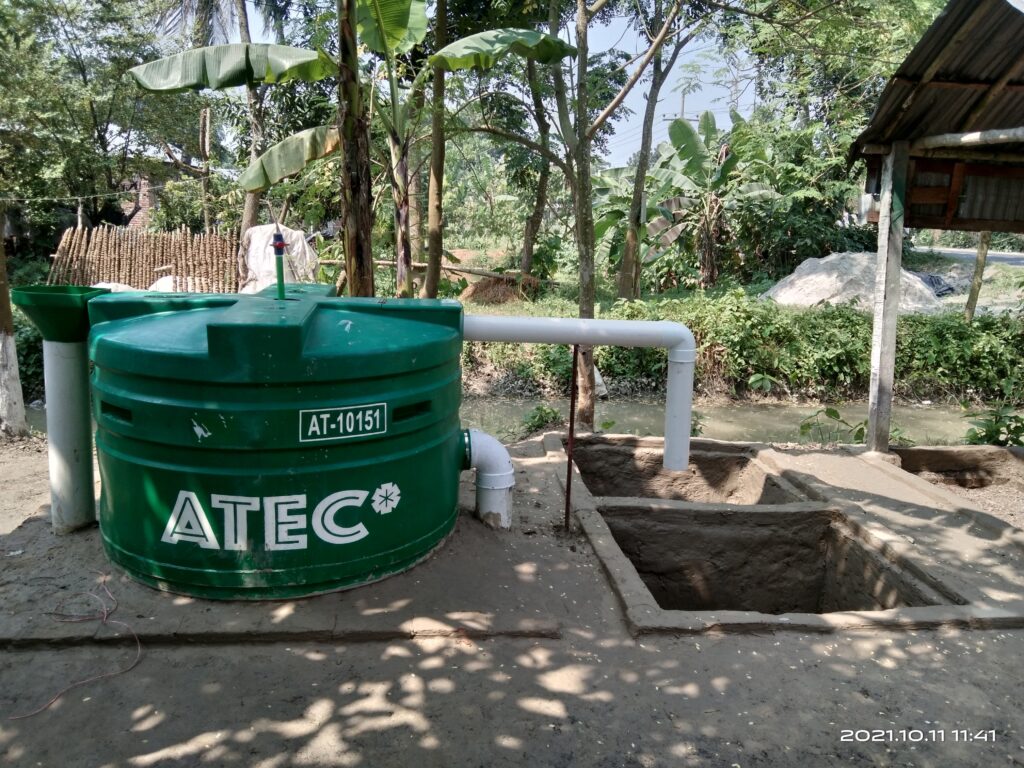
Q: How have global development partners, such as ACDI/VOCA, helped you do something you were not able to do before as a business?
A: In just two years, it is difficult to have a big network all over Bangladesh. ACDI/VOCA has been in Bangladesh for quite some time, so they had network capabilities and agents. You also have a presence in some regions of Bangladesh where ACDI/VOCA implements other projects. So, the biggest help we received was access to networks and the learnings that ACDI/VOCA has gained since operating in the country.
With this, we developed a gender-based marketing campaign and some digital campaigns to connect with local agents.
Q: What is an “a-ha” moment for you? How has the way you think about investing locally changed?
A: When we approach our customers who are using conventional cooking methods, our product requires a big mind shift. Behavior change among consumers requires a lot of effort; it takes time. This reflects the importance of collaborations across sectors and with development partners.
Q: If your development partner were to announce they were leaving the sector in three to five years, what would you expect from to ensure you continue making an impact after they are gone?
A: In Bangladesh, we have found that when the development partner leaves, some activities get shut down. When we work with development partners, we are trying to identify those pain points, research those markets based, learn from their experience there, and design campaigns in such a way that the impact will be sustainable.
In the last two years, we have not been at all dependent on those development partners. We try to come up with a sustainable program that basically helps those agents and others to continue with our programs. Despite some of our partnering development projects ending last year, we continue working with those agents that we trained and engaged in different campaigns.
Comments

